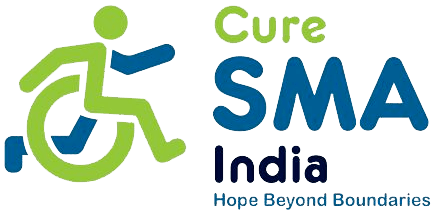Nutrition is important for good health. In diseases like SMA, malnutrition and a poor diet can contribute to breathing muscle weakness and weakening of the immune system.
A balanced diet should consider several different factors: calorie intake, fats, protein, carbohydrates, vitamins and minerals. Benefits of achieving the correct diet include improvements in quality of life, muscle function and bone health.
Usually dieticians will estimate calorific requirements of individuals with SMA to be 20 to 50% less than other individuals of the same age. Over time, calorific intake reduces compared to the recommended daily intake of healthy individuals; this may be due to reduced movement and therefore using less energy. Even small increases in calorific intake can cause significant weight gain. A nutritionist can help you determine the proper balance of proteins, fats and carbohydrates, recommend foods that your child might better tolerate, and help to make sure your child is taking in enough vitamins and minerals.
A delicate balance must be struck between calories, fat, protein, and carbohydrate intake. It has been seen that many children suffer from calcium and Vitamin D deficiency. Supplementation of both may improve bone strength and help in avoiding fractures.
Nutrition Related Problems Associated with SMA
| Type of issue | Description | Challenges | Prevention |
| Feeding issues | Depending on the type and severity of SMA, feeding challenges include difficulty chewing and/or swallowing and choking issues. | Mouth opening/bite, tongue control, head control and positioning, facial muscle weakness, range/fatigue in chewing muscles. | A semi-solid diet and thickened liquids can be a solution for chewing problems. Orthotic devices and varied seating positions also enhance the ability for SMA patients to eat on their own and may improve swallowing efficiency and safety. |
| Aspiration | Small amounts of food or liquid enter the trachea (windpipe) instead of the esophagus (tube to the stomach). | Can also occur due to stomach contents flowing back into the esophagus and then into the lungs. Can cause pneumonia and difficulty breathing | Nasogastric tubes (a feeding tube up the nose directly into the stomach) and gastrostomy tubes (a tube surgically inserted through the skin directly into the stomach) may be advised for some individuals with SMA to avoid swallowing problems and to allow more nutrition to be given |
| Abdominal problems/ discomfort. |
Diarrhea, bloating, spitting up, vomiting after meals, bad breath, regurgitation of feeds, and/or abdominal distention | May contribute to undernutrition. | |
| GERD (Gastroesophageal Reflux Disease) | Most common in individuals with Type I, followed by Type II. Scoliosis may contribute to increased abdominal pressure leading to hiatal hernia and reflux gastroesophagitis. Constipation can worsen gastric reflux or respiratory symptoms. |
Causes increased danger of aspiration and pain | Give small meals. Avoid irritating foods. Management of reflux typically involves the use of acid neutralizers (magnesium or calcium carbonate) or inhibitors of acid secretion. |
| Constipation | Infrequent bowel movements. Tied to reduced intake of fiber and/or inadequate fluid intake. | Abnormal gastrointestinal motility (ability to move bowels) | Give high fiber foods. Use of probiotics help maintain a healthy gastrointestinal environment Doctor may recommend some laxatives. |
| Undernutrition | Difficulty growing and gaining weight is common in children with Type I or possibly in those with Type II. | Increased risk of infection. Difficulty with wound healing. Tendency for pressure sores | Seen mostly in Type 1. Supplements are given. Dietician should be involved when infants are grossly underweight. |
| Obesity/overnutrition. | Commonly seen in those with milder Type II and Type III. Could increase the burden of care and/or decrease the quality of life. | Increased pain & associated complications with hips and back. Increased risk of diabetes and hypertension | Seen mostly in Type 2 &3. The calorie requirements could be as low as half of what a normal child may need. Contact a dietician. |
